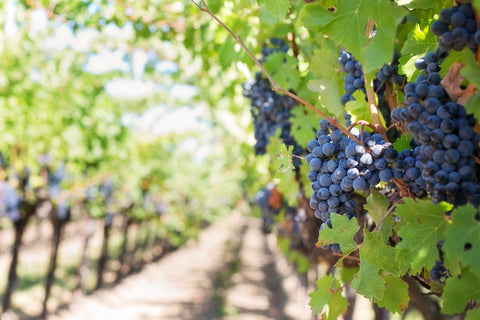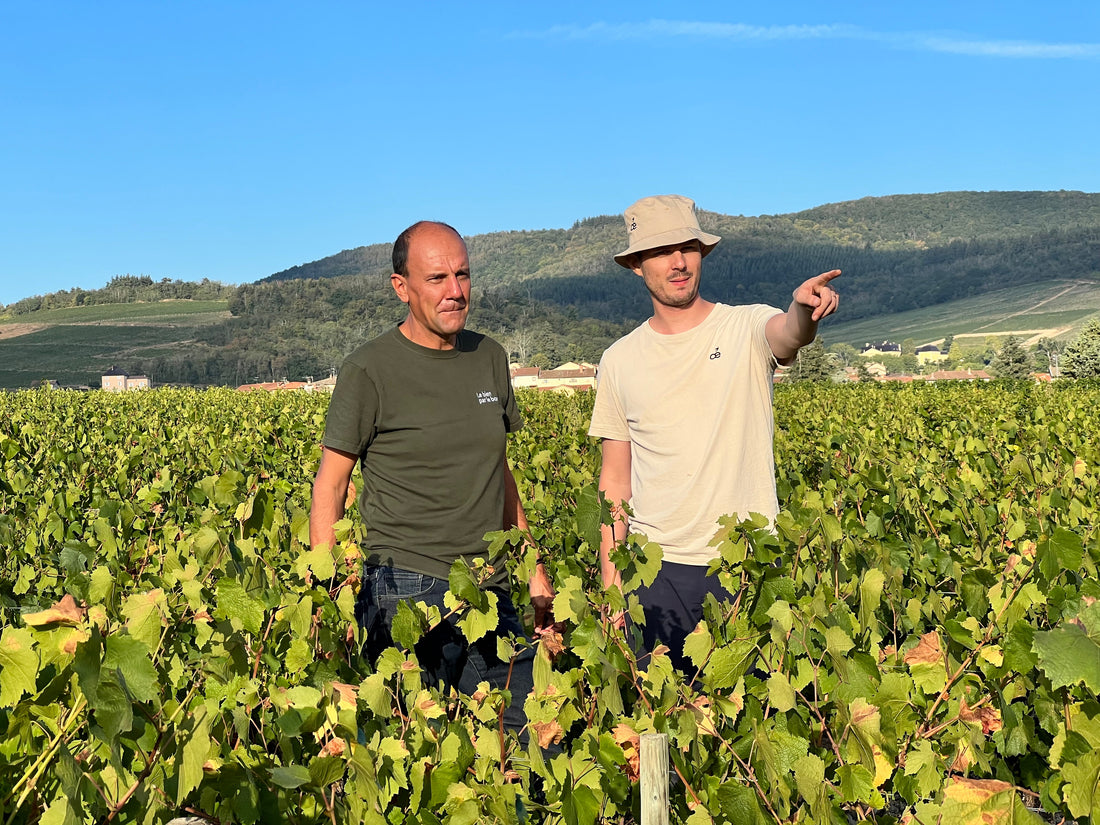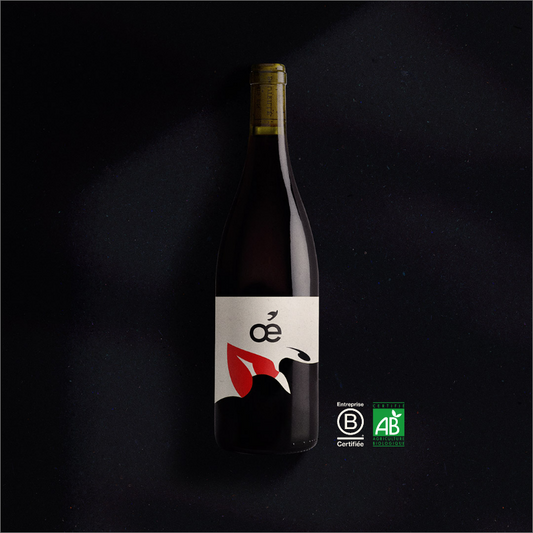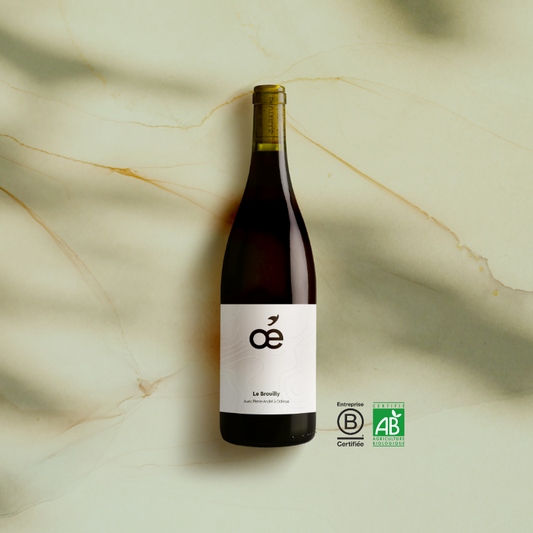The recipe for making good wine always starts with good grapes , then adds a little love, know-how and some sleight of hand. In any case, for organic wines , we avoid additives galore which denature the wine and are not very good for your health . Come with us, we take you to see what happens in a bottle of organic wine .
Production of organic wine
Between a bowl of carrot soup or zucchini soup it is not difficult to see the difference, but between a glass of traditional red wine and a glass of organic red wine , the challenge is more raised. How do I know what the differences are?
Organic viticulture
Producing organic wine is more than a culture , it's a whole philosophy and it starts with viticulture . To feel a difference in the glass and in the body , the winemaker begins the preparations in the field. It's a bit like a top athlete, before shining on the field in the eyes of all, he prepares properly. So, the winegrower takes care of his vines with attention, patience and rigor throughout the year. It offers them the best possible care, protects them and helps them grow without destroying the surrounding fauna and flora . We know it well, “with if we would remake the world”. And if we started with natural fertilizers and natural pesticides (pesticide = which kills the disease, they are not necessarily harmful to the environment), to improve the life of our soils, what do you think?
As Baloo says in The Jungle Book: “It doesn't take much to be happy. A little fresh water and greenery provided by nature” is the ideal recipe for healthy vines . Well, of course it's not that simple, and in addition to herbal preparations , the winemaker uses other methods such as Bordeaux mixture or horn dung , in any case, he only uses natural products . No chemical phytosanitary products that destroy everything in their path, in organic viticulture we think of the vine but also of the terroir , biodiversity and us . Yes, it's not just nature that suffers from chemicals , we also suffer the consequences, so we can say that the winegrowers who work in organic farming are a bit like our everyday heroes. Being organic means protecting our health, that of winegrowers and the planet. The winning combo!
As in Marvel or the X-men, unity is strength and organic wine producers are not alone in this fight. They can count on winegrowers who produce biodynamic wines and natural wines .
If you want to understand the philosophy of biodynamics, it's here
Now we know, to produce organic wine, we start on a healthy basis with grapes from organic farming and not GMOs . So now that we have the right ingredients to make the recipe, what happens?
Vinification, the secret of the composition of organic wine
In the kitchen, it's well known, it's all about dosage and making wine is a bit like cooking . Does chocolate cake speak to you? We see you greedy behind the screen. To make a good cake, we adjust the right proportions so that it is not too sweet, too floury or even too chocolatey, in short, we work with meticulousness. The winemaker does the same and even if he does not play with flour or eggs ( although sometimes it happens for fining ), you have to aim just to make the right blends of grape varieties and put the right amount of inputs .
In organic winemaking , the inputs are very controlled and above all very reduced, and so much the better for our health. Ingredients are one of the big differences between organic wines and conventional wines . The composition of an organic wine has far fewer inputs and above all, they are indigenous inputs. Do you have in mind the image of an Indian or Papuan tribe? No, no, indigenous means that the inputs come directly from where the vine grew. If you want to see the whole list in detail, we let you take a look at this document .

Why add inputs? There can be several reasons.
Transforming grapes into wine is not an easy task, the winegrower must follow a whole protocol and you must not fail because even if the tarte tatin was born from an error, in viticulture, errors are very expensive.
Some inputs may be necessary for steps, sulfur for example can stop the fermentation. On the other hand, when it is not controlled, you can quickly be tempted and use inputs everywhere, for everything, in particular to “improve” your wine, correct errors and even modify the taste .
Thanks to the organic label (AB) , we ensure that there is no such problem. The label ensures compliance with the specifications , by carrying out all kinds of tests on wines that are certified organic to check that there are no chemical inputs .
Sulfites in the composition of wine
Sulfur is a natural element called a trace element, which has practical virtues but which, in excess, also has its inconveniences. Yes it's like everything, nothing is bad, well almost, provided you consume it in moderation. Sulfur is therefore the winegrower's good friend as long as he uses it sparingly, the friend of moderation.
During almost all stages of winemaking , the winemaker can use sulfur to stabilize the wine , maximize shelf life and prevent infection . At first glance, it is rather tempting then to avoid the abusive use of sulphites, the AB label indicates in its specifications the maximum doses of sulfur per liter authorized for each wine.
Having less sulfur in your wine is great for two reasons. The first is that the wine is less denatured and that it fully expresses its potential . No clown make-up to hide a sad face, organic wine presents itself naturally, all smiles and proud of it.
The second is that it's better for your health . Do you see the hammer banging in your head the day after a drunken dinner? Well if it's there, it's largely because of sulfur. So thanks to organic wine, you avoid headaches and enjoy your evening with friends by tasting your glass of wine without fear. A delight!
In this article, we talk about natural wines, Without Any Inputs Or Added Sulfites (SAINS)
Organic wine tasting
Once we know more about the composition of organic wine , what do we do? We taste it of course!

Opportunities to drink a good organic wine are there every day, and when you find the perfect moment, it's ecstasy. A glass of wine in the morning is like a cup of coffee before going to bed, it's not ideal, but throughout the day be sure that there is more than one moment to enjoy yourself.
Whether it is a white wine , a red wine or a rosé wine , you can enjoy it as an aperitif , with a meal, with cheese and even for dessert , it all depends on your preferences and also on the wine you choose. We have written a few articles on food/wine pairings and also on wine aromas if that can help you choose:
Organic wine is also a drink that can be enjoyed without accompaniment, to simply focus on its aromas , its structure and the memory it leaves on our palate with each sip we swallow. Beyond a gustatory pleasure , organic wine is also a visual masterpiece . The color palette is certainly less rich than that of the rainbow, you are unlikely to find blue or green wine, or call us urgently, but there are many shades of color among white wines , red wines and rosé wines .
The composition of the wine plays a lot on its color and its structure, whether it is the tannins , the sugar content or even the anthocyanins (pigment of the wine) . A very sweet mellow wine will tend to be more golden than a dry wine which will be brighter and lighter in color.
Fining is a crucial stage for the appearance and structure of the wine. It is not a question of sticking like in college with your famous UHU stick, but of using proteins to retain the fine particles which then settle at the bottom which makes it possible to clarify the wine . It's crazy isn't it? Well to glue the wine, as surprising as it may seem, you can use egg white or fish glue, but at Oé, you won't find any of that because our wines are organic and vegan . Our Oé winegrowers therefore use vegetable proteins .
If you are interested, we talk to you in more detail about vegan wines in this article
Now that you are pros in the composition of organic wines , move on to tasting. Knowing the theory is good, practicing it is even better!
Treat yourself to our selection of good organic red wines , organic rosé wines and organic white wines . Discover our appellations with our Côtes-du-Rhône , our Corbières , our Bordeaux , our Languedoc , our Méditerranée de Provence and our Vaucluse Principality of Orange .





